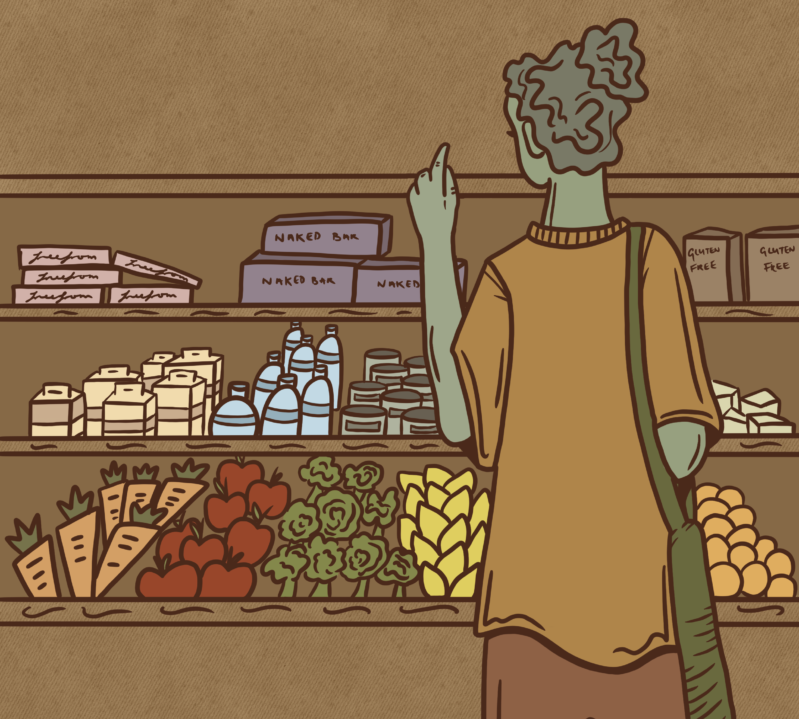
The dawn of the New Year provides us all with the opportunity to reinvent ourselves in ways big and small. Waking up on January 1st, we are filled with noble intentions for the year to come, even though, if our past patterns are anything to go by, we all know we’ll be back to our old habits in a week (at a stretch). Perhaps I am too cynical. After all, I have made New Year’s resolutions into lasting lifestyle habits when they slotted into my lifestyle easily, not requiring too many major adjustments for me. Sadly, the so-called “wellness” industry capitalises on individuals’ vulnerabilities at this time of year, pushing fad diets and unsustainable workouts. However, a major lifestyle change that many people have enjoyed in recent years and centres around eating habits is Veganuary, a novel concept which combines veganism with (drum roll) January.
Since its inception in 2014, there have been over a million participants across the world, each person armed with their own personal reasons for trying out veganism. A vegan diet has been hailed as one of the best ways to take personal responsibility for climate change. However, rhetoric surrounding issues such as carbon footprint have been shown under a controversial light when it was revealed that British Petroleum (BP) coined the term in an effort to shift the responsibility of global warming onto the average person.
Perhaps individual actions might not amount to much in the grand scheme of fighting climate change, but the combined actions of many individuals amount to something powerful: collective action. Reducing dairy and meat intake in particular can greatly soften the step one takes on the earth, due to the heavy water and land usage farm animals require and the methane they produce. Making lifestyle changes such as shifting to a plant-based diet can be an empowering act in a world that is so often shrouded in eco-doom and gloom.
I spoke with both current and former Trinity students partaking in Veganuary about their thoughts and feelings on the month so far. Tara O’Brien, a final year molecular medicine student, spoke of her enjoyment of the experience despite it “being more challenging than [she had] anticipated”. The challenges came as a surprise to O’Brien as she has been vegetarian for six years and cut out dairy a few years ago to help with skin issues. She had almost been an inadvertent vegan for some time. The eggs she consumed irregularly came from a neighbour who has “rescued retired hens”. The challenges mostly cropped up when encountering products, such as salt and vinegar crisps, which unexpectedly contain ingredients such as milk powder.
These frustrations resonated with Harry Crowe, a final year French and Spanish student who was surprised by the presence of milk-powder in all of Tesco’s finest selection of crisps with the exception of the salt and pepper flavour. Crowe spoke of missing certain “night out foods” such as garlic cheese chips, though he found solace in spicy chips being vegan.
Heather Burke, who recently completed a master’s degree in International Peace Relations at Trinity, also put Veganuary to the test. Burke found much enjoyment in cooking exciting new recipes, but, like O’Brien and Crowe, found snacks to be a challenge as they contain so many “sneaky animal products”. Burke found that eating vegan required more meal preparation, however for Crowe, as long as the food that’s in his fridge is vegan, it has been relatively easy.
O’Brien enjoyed branching out and trying new Irish vegan companies such as Vegan Sandwich Co. and Sons of Butchers. Vegan Sandwich Co “turk*y” and Sons of Butchers “trickin’ strips” were particular hits. Much vegan recipe inspiration can be found on Instagram, TikTok, and YouTube, and favourites of those I spoke with were Mob Kitchen, Helena Rose Cope and Veganlife.ie. Surrounding oneself with content that inspires and encourages cooking can help ease the difficulties of a vegan diet considerably by reducing unnecessary temptations. Like with all parts of life, breaking a habit is the most difficult stage when embarking on a lifestyle shift.
The question many Veganuarians are faced with at the end of January is whether or not they will be maintaining a vegan diet for the months to come. O’Brien is still unsure as she lives at home with her parents who still eat meat and already cater for her vegetarian diet. However, she has “discovered lots of new products and recipes that are vegan and will be incorporating them into [her] non-vegan meals”.
Crowe, also a long-term vegetarian, feels similarly. He is keen to keep including only vegan products in his grocery shops, but perhaps if he is out with friends and garlic cheese chips calls his name, he might say yes. Missing cheese appears to be a motif throughout these conversations, as Burke also wishes to keep cutting down on animal products but says that cheese is a non-negotiable. How is it that lofty concepts such as space travel exist but genuinely good vegan cheese has yet to grace our supermarket shelves?
Veganuary, and veganism in general, is an act of radical hope. To go against the grain in a society that thrives off people unquestioningly following the status quo is not an easy thing. However, as these three showed, veganism, vegetarianism and everything in between is not a destination, it’s a process. In the capitalist-oriented world that we live in, money is power, and by putting our money in the hands of companies who endorse veganism and sustainable lifestyle habits, we are creating a quiet revolution with a loud impact.






